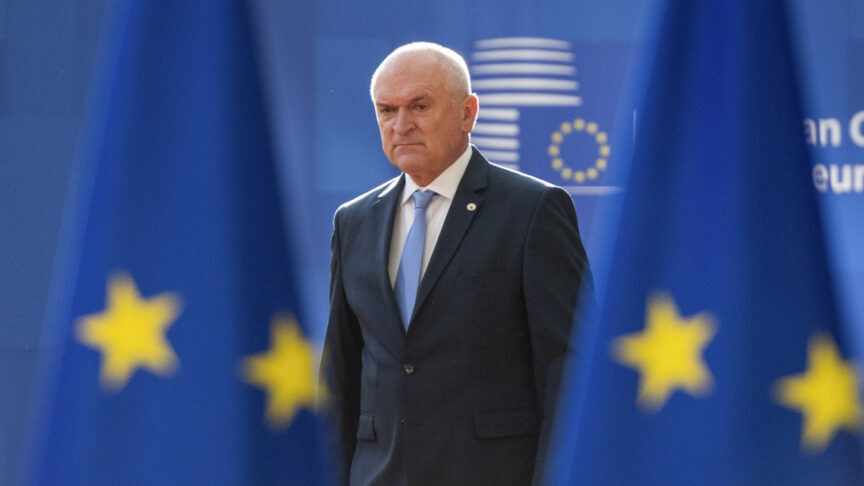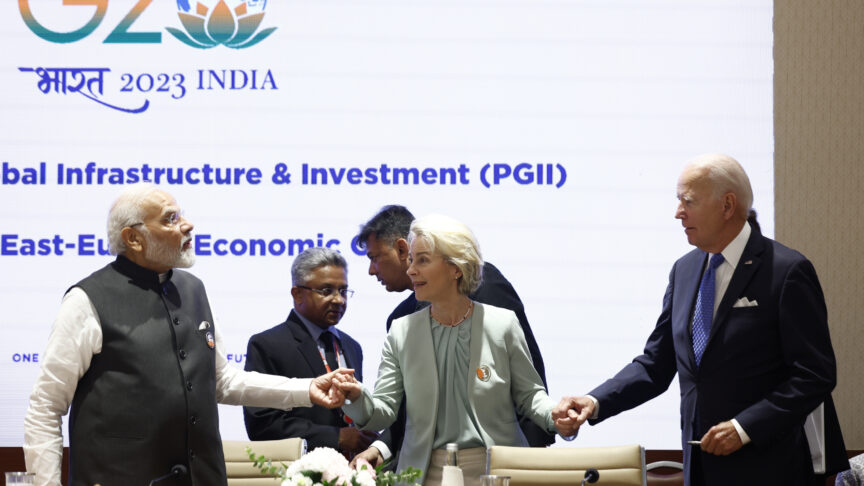View from Warsaw: the Polish riddle
It is less about concrete policy ideas than an overall strategy towards the EU: will it take a pragmatic position or pursue an ideological path?
If one listens to recent statements by Jaroslaw Kaczynski, the country’s leader in practice if not in title (formally he is just the leader of the ruling Law and Justice party), Poland’s ambitions towards the EU post-Brexit agenda would seem to be very high. Shortly after the British referendum Kaczynski declared that EU treaty change is necessary. His proposal involves renationalization of competences from the Commission, strengthening of the subsidiarity principle, and „widening of the unanimity voting“ procedure.
In a press interview Kaczynski announced that he had tasked a „renowned” lawyer (he did not disclose his or her name) to draft detailed Polish proposals for such a treaty reform. About the same time the Prime Minister, Beata Szydlo, said that the Visegrad Group would submit a joint paper ahead of the Bratislava summit outlining ideas for the future of Europe. How this proposal would relate to Kaczynski’s treaty change initiative remained unclear.
No less ambitious than an overhaul of the EU’s institutional structure is the idea of a „cultural counter-revolution” in Europe: speaking in a panel with Victor Orban at the Krynica Economic Forum on September 6, Kaczynski supported the Hungarian Prime Minister’s vision of Europe based upon strong national and religious identities in which Poland and Hungary may serve as examples to be followed by others.
Polish commentators were quick to note that Kaczynski’s remarks were less radical than those of his Hungarian ally (Kaczynski talked about Brexit as a risk, Orban as an opportunity). But what matters (especially in the eyes of foreign observers) is whether all this talk of the need for the EU „to get back to its roots” as a structure of purely economic cooperation (foreign minister Waszczykowski) is a signal that Warsaw is willing to torpedo the process of EU adaptation whenever it serves Kaczynski’s ideological convictions or domestic policy interests?
This uncertainty dominates discussions about Poland’s position in debates about the EU in the post-Brexit era. Kaczynski’s enunciations were largely relativized by Prime Minister’s Szydlo position at the EU June summit where she avoided any remarks about a treaty change. The moderate and thoughtful Minister for European Affairs, Konrad Szymanski, also explained in a press interview that „opening of the EU treaties is not a taboo for Poland, provided that the situation is ripe for that”. This position puts Kaczynski’s ambitious claims in a completely different light. It also raises the question of what is the real Polish position and who is in fact in charge of defining it?
This unpredictability worries European partners but the more moderate expression of Polish concerns finds many supporters across the EU.
This unpredictability worries European partners but the more moderate expression of Polish concerns finds many supporters across the EU. Szymanski’s rhetoric is in no way at odds with parts of the EU mainstream when he talks about the need for the member states to regain „ownership” of the EU integration process and improve the EU’s ability to „deliver” on security and prosperity. Here there is no disegreement with Angela Merkel, who during her recent visit to Warsaw indictated that her priorities would be strengthening internal security, creating jobs, the digital market and promoting economic growth.
In terms of institutional adjustments, Poland will promote ideas to strengthen the role of nation states in the decision making system: a „red card” for national parliaments (if not legally anchored in the treaties than as a de facto political commitment) and a process for member states to invoke European Council review of any dubious legislative initatives of the Commission. Interestingly, foreign diplomats based in Warsaw say that Poland seems to be interested in stronger cooperation in the Common Security and Defence Policy (CSDP) and that creating a „defense union” might be one of the next integration projects after Brexit. It is to be expected that those economic, institutional and defense policy ideas – along with a focus on internal security, strengthening border controls and a rejection of EU standards on migration and asylum – will constitute the essence of the Polish or Visegrad proposals before the Bratislava summit.
In relation to Brexit, Poland’s main concern will remain the relationship between the Eurozone and non-euro countries. Brexit massively weakens the position of the latter and changes the balance of power in the EU to the advantage of the euro club. Poland’s ambition not to let future reforms of the Eurozone (not likely until 2017 but not to be ruled out after the elections in Germany and France) negatively impact on the interests of the rest of the EU might be difficult to achieve.
Finally, a future deal between the EU and the UK may lead to limitations in the freedom of labour movement in the EU. Here the Polish stance seem to be more relaxed than before: the rights of Poles currently in the UK must be protected but restrictions for future migrants are less of a problem. This is due, firstly, to the fact that numbers of migrants have fallen considerably. Secondly, the PiS government would like to keep young and well educated Poles in their home country. But the notion that freedom of labour movement is not a necessary pillar of the single market would certainly be met with scepticism in Warsaw.
All in all, the Polish riddle is less about concrete policy ideas than an overall strategy towards the EU: will it take a pragmatic position or pursue an ideological path? Both routes are still open – the answer depends largely on Jaroslaw Kaczynski’s inclinations and the future evolution of the domestic policy context.
The European Council on Foreign Relations does not take collective positions. ECFR publications only represent the views of their individual authors.


